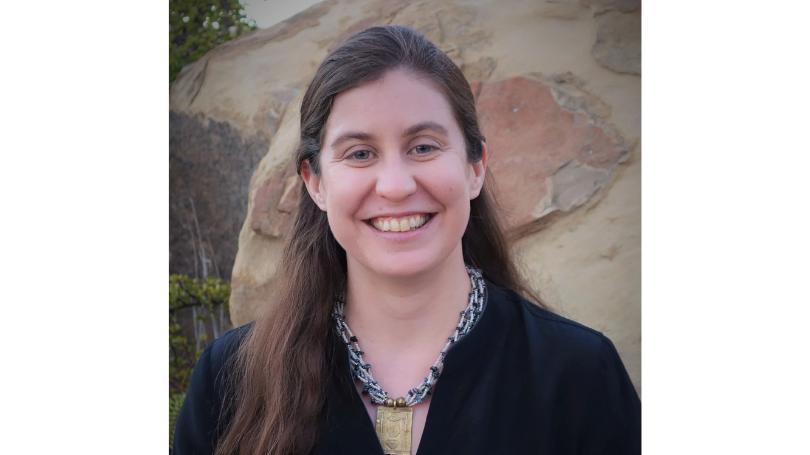
- About
- Undergraduate
- Research
- Inclusivity
- News & Events
- People
Back to Top Nav
Back to Top Nav
Back to Top Nav
Back to Top Nav
Economist Meredith Startz co-leads an international research initiative on challenges facing firms and markets in low-income countries.
Assistant Professor of Economics Meredith Startz has long taken a special interest in figuring out exactly how firms interact in low-income countries, analyzing questions such as how small firms find new products and build relationships with suppliers.
Now, in her new role as a theme leader for Private Enterprise Development in Low Income Countries (PEDL), she will help shape the agenda for a key international research initiative.
PEDL is a joint research initiative of the Centre for Economic Policy Research, a European network of more than 800 economists, and the U.K.'s Foreign, Commonwealth and Development Office. As a partnership between the academia and policy worlds, it focuses on producing research that can help policymakers arrive at solutions.
Startz will be co-leading the Innovation, Organisations and Markets theme group, which focuses on economic activity within and among firms in low-income countries. In a recent conversation, she explained how she first became involved with PEDL, its support of young researchers, and the unexpected connections between policies and individual business decisions in developing countries.
What are your goals for your new role, and what are you most looking forward to as you start this position?
PEDL has been around for just over 10 years, and has already done a lot to promote research on private enterprise in developing countries. Since so much good research has been done in the last decade, one of the goals for the new theme leaders is to reassess the current state of the literature and identify areas where there are still big open policy questions. I'm excited to play a role in that process. I'm also looking forward to finding new ways for PEDL to support students and junior researchers, building the pipeline of people studying firms in developing countries.
How will your research—which is at the intersection of development and trade, and focuses on how information problems shape transactions and firms in developing countries—guide your work as a theme leader?
Much of my research is about understanding how firms interact with each other in markets—not just treating them as anonymous agents who magically end up in "equilibrium" through some unspecified process. I collect new data to understand what that process actually looks like, concretely, in developing countries. How do people decide who to do business with, and how is that influenced by the particular information and strategies they have available to them?
For instance, some of my work in Nigeria looks at the challenges importers face in figuring out what products are available abroad and trusting that foreign suppliers won't cheat them. One way many importers deal with this in practice is to apply for a visa, buy a plane ticket, and spend weeks every year traveling abroad, meeting with potential suppliers in person. That strategy is effective, but costly, and so imported goods in Nigeria are a lot more expensive than they would be if information about suppliers were easier to get or travel were cheaper.
One implication of this kind of study that is related to PEDL's mission is that there are policies you wouldn't immediately think of in connection to markets in low-income countries—like how easy it is for Nigerians to get visas for short-term visits to China or the U.S.—that are actually quite important for how well those markets function.
How did you first become interested in this area of research?
PEDL played an important role in this. When I was in graduate school, I received a small grant from PEDL that was targeted at PhD students. While the grant itself was nice, what was really important for my development as a researcher was the involvement with PEDL and the associated support and network. I attended a PEDL conference in the U.K., and met people working on related topics. In fact, it was at a dinner at that conference that I first learned that Nigerian importers were traveling to China regularly. I found that so intriguing that I started working in Nigeria and my dinner tablemate became my main collaborator on the next seven years of fieldwork there.
Something I've always admired about PEDL's approach is the commitment to taking a risk on young researchers and giving them the support and resources to explore new things. I hope we can keep that spirit going.
Has the subject of problems facing firms in low-income countries been somewhat overlooked within academic research?
When PEDL first got started, I think it's fair to say that studying firms was not a major focus for development economics. One reason was a simple lack of data: development economists had been specializing in longitudinal surveys focused on health, education, agriculture, and related topics, but there wasn't much on firms. Over the last 10 to 15 years, in part because of the work PEDL and others have done, it has become much more established. A lot of legwork has been done by both academics and policymakers to make data available, like Value-Added Taxtax data and matched employer-employee data from government sources, and survey data collected by researchers.
As a result, we know a lot more about what the facts on the ground are than we did a decade ago. It's great that this has led to more attention to issues that weren't being studied before. Now that we have the data, there is a lot more we can do. I think there will be another exciting decade of research on these issues